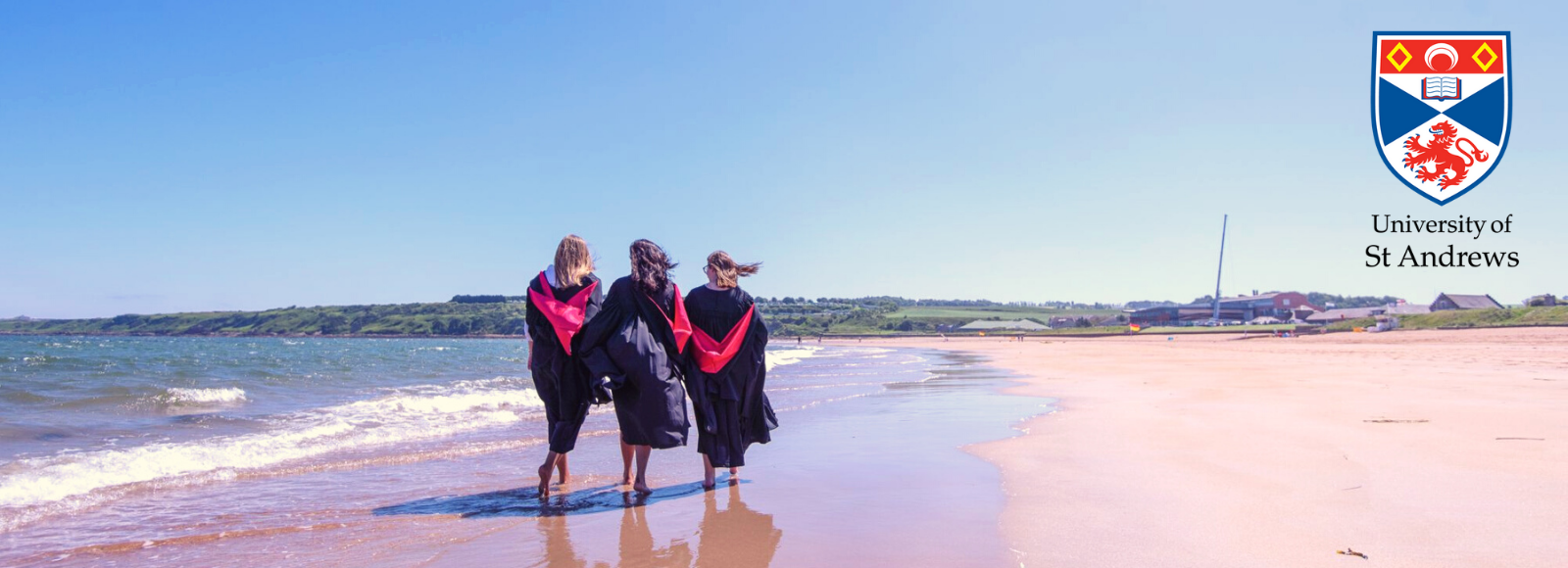Masters Degree Description
The MLitt in Modern History is a taught postgraduate programme run by the School of History.
Highlights
- The course provides an introduction to history and historiography for students interested in all branches of historical study.
- Students can both specialise in a particular area (for example, British history, German history, American history) and gain a broader introduction to the study of history at postgraduate level.
- Students will explore the literature on a topic of individual interest under the guidance of an expert.
Entry Requirements
A 2.1 Honours undergraduate degree in History or a related subject. If you studied your first degree outside the UK, see the international entry requirements.
The qualifications listed are indicative minimum requirements for entry. Some academic Schools will ask applicants to achieve significantly higher marks than the minimum. Obtaining the listed entry requirements will not guarantee you a place, as the University considers all aspects of every application including, where applicable, the writing sample, personal statement, and supporting documents.
Application requirements
- CV or résumé. This should include your personal details with a history of your education and employment to date.
- a personal statement
- a sample of your own, single-authored academic written work (2,000 words)
- two original signed academic references
- academic transcripts and degree certificates
Fees
For fees and funding options, please visit website to find out more
Student Destinations
History postgraduates go on to pursue careers in a range of sectors including:
- journalism
- publishing
- think tanks
- government
- law
- teaching
The Careers Centre offers one-to-one advice to all students as well as a programme of events to assist students in building their employability skills.
Module Details
Compulsory
- History in the Making: Theories, Approaches and Practice 1: examines the development of modern history writing and historical research, and the emergence of fields, trends and new approaches in current historiography.
- History in the Making: Theories, Approaches and Practice 2: places emphasis on particular types of historical sources, such as travel accounts, maps, music, media, and interviews, and the ways in which historians may approach and work with these sources.
Optional
Students choose two optional modules. Here is a sample of optional modules that may be offered.
- Building Britain: The Construction and Deconstruction of
- Britishness since 1707: explores the concept of ‘Britishness’ and its construction and deconstruction, from 1707 to 2000.
- Central and Eastern Europe since 1945: examines nations' common and individual responses to Soviet domination from the end of the Second World War to 1989 and after.
- Global Capitalism: Origins and Development from a Political
- Economy Perspective: explores some of the most fundamental economic phenomena that have shaped the modern world.
- Key Issues in German Historiography: engages with some of the most hotly disputed issues in German history.
- Perceptions of Central and Eastern Europe: examines perceptions of Central and Eastern Europe which have undergone significant transformation since the emergence of modern nationalism in the mid-19th century.
- Skills in Digital History: Maps and Text: leads to the acquisition and development of skills in the digital humanities and skills required for using specific historical sources.
- Themes in American History: examines a selection of the most important issues in the history of North America, from its foundations as European colonies onwards.
Optional modules are subject to change each year and require a minimum number of participants to be offered. Some modules may only allow a limited number of students. See the University’s position on curriculum development.
Dissertation
Student dissertations will be supervised by members of the teaching staff who will advise on the choice of subject and provide guidance throughout the research process. The completed dissertation of not more than 15,000 words must be submitted by a date specified in August.
If students choose not to complete the dissertation requirement for the MLitt, there is an exit award available that allows suitably qualified candidates to receive a Postgraduate Diploma. By choosing an exit award, you will finish your degree at the end of the second semester of study and receive a PGDip instead of an MLitt.
Learn more about University of St Andrews

Scotland’s first university, an experience like no other
Masters programmes to help you find your future.
Are you looking to earn an outstanding pos...
